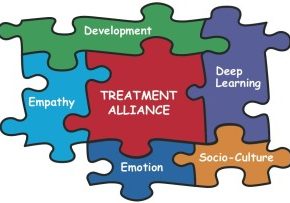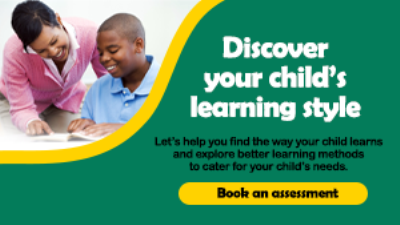
Educational therapy is a general term for when an educator works one-on-one or in small groups with your child, usually outside the classroom. This can cover a lot. It could mean reading interventions, math interventions, life skills, specialist therapies, a counselor, a teacher who helps children learn study and organization skills.
If educational therapy sounds very broad, that’s because it is. There isn’t a strict definition of educational therapy.. This makes it different from more specialized areas like occupational therapy. Educational therapy isn’t the same as tutoring. Traditional tutors focus on academics. Educational therapists use a broader approach. And educational therapists may have more experience working with children with learning and attention issues.
For example, if your child has dyscalculia and math anxiety, a tutor might practice math problems over and over. An educational therapist, on the other hand, might see that your child struggles with number sense. She might teach your child strategies for recognizing basic number facts, or suggest accommodations. She might also teach your child coping skills for anxiety.
Educational therapists help build your child’s academic skills and self-confidence. The work they do can be quite varied. And they come from a wide range of professional backgrounds. They may be:
- General or special education teachers
- Reading or math specialists
- Social workers
- Speech therapists
- Counselors who’ve earned additional certifications
Educational therapists tend to specialize in one or more areas. It’s common, for instance, to have therapists who focus on multisensory reading instruction. Some also work with students of a certain age, like grade-schoolers. Sometimes, they work with children who have a specific issue, like ADHD.
How Educational Therapy Can Help Children with Learning and Attention Issues
Since your child goes to school, it may not be clear to you why you’d need to work with an educational therapist, too. After all, schools are supposed to teach children academics. And children with an IEP often have special education services to help them in school.
The answer is that the instruction at school may not be enough for your child. There also may be a lack of understanding of your child’s issues. Or the school may not be helping your child with a specific skill, like studying or writing papers.
In these cases, you may want to supplement with outside services. A traditional tutor may not understand your child’s learning and attention issues. A professional like a doctor or a psychologist isn’t trained to meet academic needs. An educational therapist can fill the gap.
Educational therapists teach skills and strategies that help children manage their issues and improve their schoolwork. They can help children with almost any learning or attention issue.
The specific strategies and treatments used by an educational therapist will vary. It depends on your child’s issues. Here are just a few examples of what therapists may do:
- Help identify behavior issues that may be caused by underlying learning and attention issues
- Teach strategies to improve focus and work habits
- Teach time management and organization skills
- Develop an educational plan by giving assessments, tracking progress and adjusting as needed
- Provide a safe environment for your child to talk
- Act as a link between home and school
- The therapist can help coordinate with tutors, specialists and teachers.
Educational therapists can also review services the school is providing through an IEP. They can help ensure that what’s happening outside of school complements in-school services.


